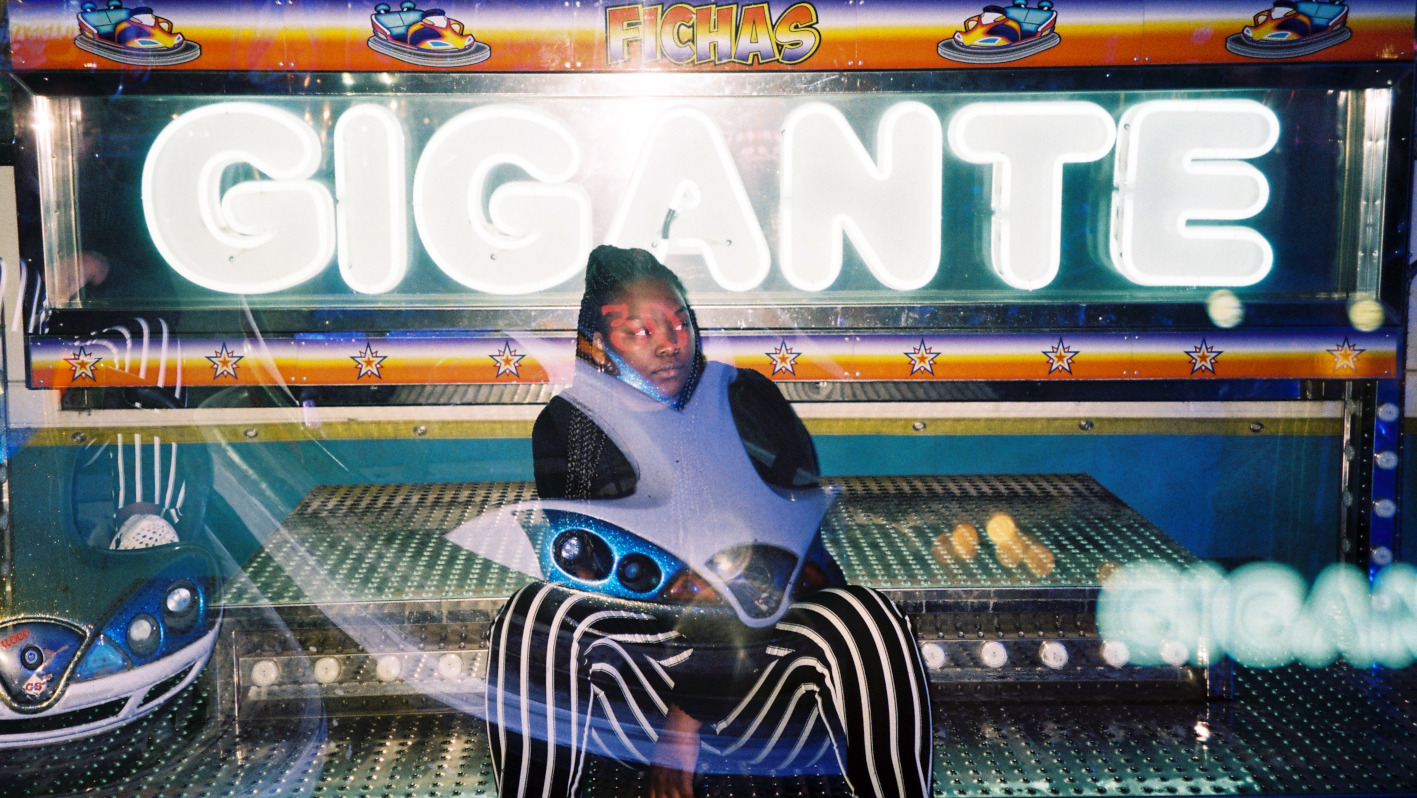Photo: Marta Pina (Nídia)
Nídia’s music may seem sparse at first, mostly rhythmic and thus functional. But the more attention you pay to what happens in between and around the beats, the more you’ll realise just how dense and rich the Lisbon-based Príncipe affiliate’s music is. Having just released the stunning Não Fales Nela Que A Mentes LP and two accompanying EPs, her mix for the Groove podcast is short but just as full of nuance and detail – 100% Nídia, indeed.
First off, how are you doing and what have you been up to lately?
I’m good most of the time, as good as it is possible, I guess that’s how everybody is. Lately I haven’t been up to much besides staying at home and producing new beats and tracks, working on remix requests.
The COVID-19 pandemic poses an existential threat to many producers and DJs who make a living mostly through touring. Has the Portuguese state taken measures to help struggling artists in this time?
I can’t tell for sure, it’s all a mess. The measures that exist don’t apply to the sort of “independent worker” that I’m supposed to be, according to the state fiscal system. All I’ve heard was artists being left out of funding and support supposedly designed for them. The Portuguese state has no interest in helping people from my line of work.
You grew up near Lisbon, but moved to Bordeaux as a young teenager and started producing as a solo artist there. What kind of music was important to you after your move to France?
There wasn’t any specific music but the style that was really seriously important to me was kuduro. For me if I went to a party and it hadn’t played kuduro the party wouldn’t have banged.
You’ve released three records in quick succession this year: you followed up an LP and an accompanying 7″ with a 12″ release. How did those releases come together, what were the respective ideas behind them?
I believe that there isn’t any idea in particular. The ting is to do what I like and be able to show people my work and my evolution throughout these years.
A lot of reviews have stressed the emotional qualities of your music and you yourself have said that your last LP was calmer than your previous material. What moves you to go to the studio to produce music, which emotions go into it?
I think the inspiration comes from knowing that I’m living my dream and there’s nothing better than that. And living each unique moment that the music can provide.
Notably, the three records have been more influenced by tarraxo than your previous records. What draws you to this particular style as a producer?
I would disagree. Maybe it’s because there’s a bunch of slower ones and it hasn’t much in common with what people are accustomed to listen coming from me.
You’ve recently won an award for your remix of Lafawndah’s “Tourist.” How was it like working on this particular track and how would you characterise your approach to remixing in general?
I approach it always the same way. I listen to the original track and when I go and make the remix it comes out as it comes out. I don’t complicate it too much.
What was the idea behind your contribution to the Groove podcast?
The idea was 100% original Nídia material.
Last but not least: What are your plans for the future?
For the time being I do not want to think about the future that much in these hard times. Until things do not reach a new normal, nothing is safe and the future for me has to be at least 90% certain.
Stream: Nídia – Groove Podcast 273
